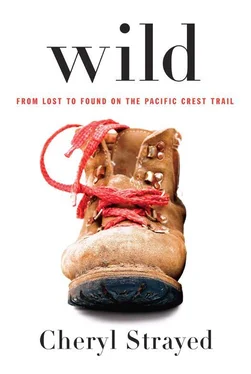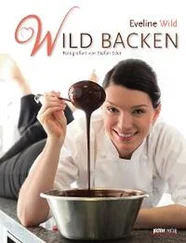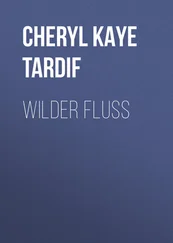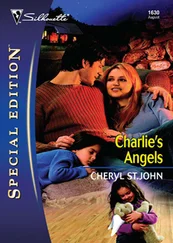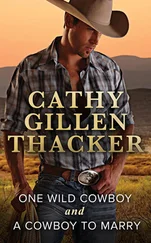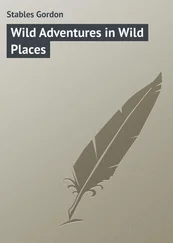Cheryl Strayed - Wild
Здесь есть возможность читать онлайн «Cheryl Strayed - Wild» весь текст электронной книги совершенно бесплатно (целиком полную версию без сокращений). В некоторых случаях можно слушать аудио, скачать через торрент в формате fb2 и присутствует краткое содержание. Год выпуска: 2012, ISBN: 2012, Жанр: Современная проза, на английском языке. Описание произведения, (предисловие) а так же отзывы посетителей доступны на портале библиотеки ЛибКат.
- Название:Wild
- Автор:
- Жанр:
- Год:2012
- ISBN:978-0-307-95765-8
- Рейтинг книги:4 / 5. Голосов: 1
-
Избранное:Добавить в избранное
- Отзывы:
-
Ваша оценка:
- 80
- 1
- 2
- 3
- 4
- 5
Wild: краткое содержание, описание и аннотация
Предлагаем к чтению аннотацию, описание, краткое содержание или предисловие (зависит от того, что написал сам автор книги «Wild»). Если вы не нашли необходимую информацию о книге — напишите в комментариях, мы постараемся отыскать её.
Wild — читать онлайн бесплатно полную книгу (весь текст) целиком
Ниже представлен текст книги, разбитый по страницам. Система сохранения места последней прочитанной страницы, позволяет с удобством читать онлайн бесплатно книгу «Wild», без необходимости каждый раз заново искать на чём Вы остановились. Поставьте закладку, и сможете в любой момент перейти на страницу, на которой закончили чтение.
Интервал:
Закладка:
“I’d like to explain to you about the nature of your mother’s donation,” the woman on the phone said in a patient and consoling voice that reminded me of any number of the grief counselors, hospice volunteers, nurses, doctors, and morticians who had addressed me in the weeks during which my mother was dying and in the days after she died — a voice full of intentional, almost overstated compassion, which also communicated that in this, I was entirely alone. “It wasn’t the entire eye that was transplanted,” the woman explained, “but rather the cornea, which is—”
“I know what the cornea is,” I snapped. “I’d still like to know who this person is. To see him or her if I can. I think you owe me that.”
I hung up the phone overcome with grief, but the small reasonable core that still lived inside of me knew that the woman was right. My mother wasn’t there. Her blue eyes were gone. I’d never gaze into them again.
When the flames from the pages I’d burned had gone out and I’d stood to return to my tent, the sound of high and frenzied barks and howls came to me from the east — a pack of coyotes. I’d heard that sound in northern Minnesota so many times it didn’t scare me. It reminded me of home. I looked up at the sky, the stars everywhere and magnificent, so bright against the dark. I shivered, knowing I was lucky to be here, feeling that it was too beautiful to go back into my tent just yet. Where would I be in a month? It seemed impossible that I wouldn’t be on the trail, but it was true. Most likely I’d be in Portland, if for no other reason than that I was flat broke. I still had a small bit of money left over from Ashland, but nothing that wouldn’t be gone by the time I reached the Bridge of the Gods.
I let Portland roll around in my mind through the days, as I passed out of the Sky Lakes Wilderness into the Oregon Desert — a high dusty flat plain of lodgepole pines that my guidebook explained had been smattered with lakes and streams before they were buried beneath the tons of pumice and ash that had fallen on them when Mount Mazama erupted. It was early on a Saturday when I reached Crater Lake National Park. The lake was nowhere in sight. I’d arrived instead at the campground seven miles south of the lake’s rim.
The campground wasn’t just a campground. It was a mad tourist complex that included a parking lot, a store, a motel, a little coin laundromat, and what seemed to be three hundred people revving their engines and playing their radios loud, slurping beverages from gigantic paper cups with straws and eating from big bags of chips they bought in the store. The scene both riveted and appalled me. If I hadn’t known it firsthand, I wouldn’t have believed that I could walk a quarter mile in any direction and be in an entirely different world. I camped there for the night, showering blissfully in the bathhouse, and the next morning made my way to Crater Lake.
My guidebook had been correct: my first sight of it was one of disbelief. The surface of the water sat 900 feet below where I stood on the rocky 7,100-foot-high rim. The jagged circle of the lake spread out beneath me in the most unspeakably pure ultramarine blue I’d ever seen. It was approximately six miles across, its blue interrupted only by the top of a small volcano, Wizard Island, that rose 700 feet above the water, forming a conical island upon which twisted foxtail pines grew. The mostly barren, undulating rim that surrounded the lake was dotted with these same pines and backed by distant mountains.
“Because the lake is so pure and deep, it absorbs every color of visible light except blue, so it reflects pure blue back to us,” said a stranger who stood beside me, answering the question I’d nearly uttered out loud in my amazement.
“Thanks,” I said to her. Because the water was so deep and pure it absorbed every color of visible light except blue seemed like a perfectly sound and scientific explanation, and yet there was still something about Crater Lake that remained inexplicable. The Klamath tribe still considered the lake a sacred site and I could see why. I wasn’t a skeptic about this. It didn’t matter that all around me there were tourists taking pictures and driving slowly past in their cars. I could feel the lake’s power. It seemed a shock in the midst of this great land: inviolable, separate and alone, as if it had always been and would always be here, absorbing every color of visible light but blue.
I took a few photographs and walked along the lake’s rim near a small gathering of buildings that had been built to accommodate tourists. I had no choice but to spend the day because it was a Sunday and the park’s post office was closed; I couldn’t get my box until tomorrow. It was sunny and finally warm again, and as I walked, I thought that if I’d continued with the pregnancy I’d learned about in that motel room in Sioux Falls the night before I decided to hike the PCT, I’d be giving birth to a baby right about now. The week of my mother’s birthday would’ve been my due date. The crushing coalescence of those dates felt like a punch in the gut at the time, but it didn’t compel me to waver in my decision to end my pregnancy. It only made me beg the universe to give me another chance. To let me become who I needed to before I became a mother: a woman whose life was profoundly different than my mother’s had been.
Much as I loved and admired my mother, I’d spent my childhood planning not to become her. I knew why she’d married my father at nineteen, pregnant and only a tiny bit in love. It was one of the stories I’d made her tell when I’d asked and asked and she’d shaken her head and said, Why do you want to know? I’d asked so much that she finally gave in. When she’d learned she was pregnant, she’d pondered two options: an illegal abortion in Denver or hiding out in a distant city during her pregnancy, then handing over my sister to her mother, who’d offered to raise the baby as her own. But my mother hadn’t done either of those things. She decided to have her baby, so she’d married my dad instead. She’d become Karen’s mother and then mine and then Leif’s.
Ours.
“I never got to be in the driver’s seat of my own life,” she’d wept to me once, in the days after she learned she was going to die. “I always did what someone else wanted me to do. I’ve always been someone’s daughter or mother or wife. I’ve never just been me.”
“Oh, Mom,” was all I could say as I stroked her hand.
I was too young to say anything else.
At noon I went to the cafeteria in one of the nearby buildings and ate lunch. Afterwards, I walked through the parking lot to the Crater Lake Lodge and strolled through the elegantly rustic lobby with Monster on my back, pausing to peer into the dining room. There was a smattering of people sitting at tables, handsome groups holding glasses of chardonnay and pinot gris like pale yellow jewels. I went outside to the long porch that overlooked the lake, made my way along a line of grand rocking chairs, and found one that was set off by itself.
I sat in it for the rest of the afternoon, staring at the lake. I still had 334 miles to hike before I reached the Bridge of the Gods, but something made me feel as if I’d arrived. Like that blue water was telling me something I’d walked all this way to know.
This was once Mazama, I kept reminding myself. This was once a mountain that stood nearly 12,000 feet tall and then had its heart removed. This was once a wasteland of lava and pumice and ash. This was once an empty bowl that took hundreds of years to fill. But hard as I tried, I couldn’t see them in my mind’s eye. Not the mountain or the wasteland or the empty bowl. They simply were not there anymore. There was only the stillness and silence of that water: what a mountain and a wasteland and an empty bowl turned into after the healing began.
Читать дальшеИнтервал:
Закладка:
Похожие книги на «Wild»
Представляем Вашему вниманию похожие книги на «Wild» списком для выбора. Мы отобрали схожую по названию и смыслу литературу в надежде предоставить читателям больше вариантов отыскать новые, интересные, ещё непрочитанные произведения.
Обсуждение, отзывы о книге «Wild» и просто собственные мнения читателей. Оставьте ваши комментарии, напишите, что Вы думаете о произведении, его смысле или главных героях. Укажите что конкретно понравилось, а что нет, и почему Вы так считаете.
